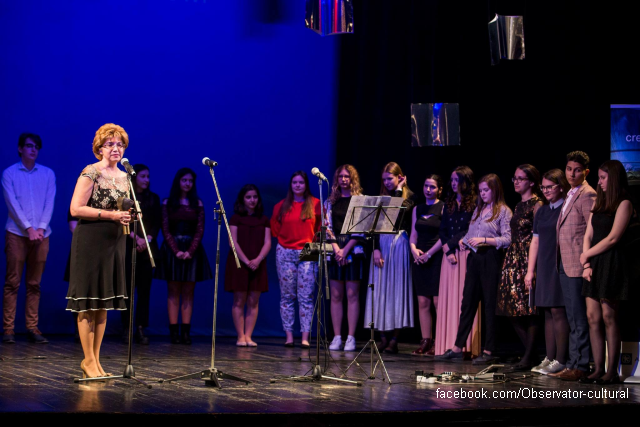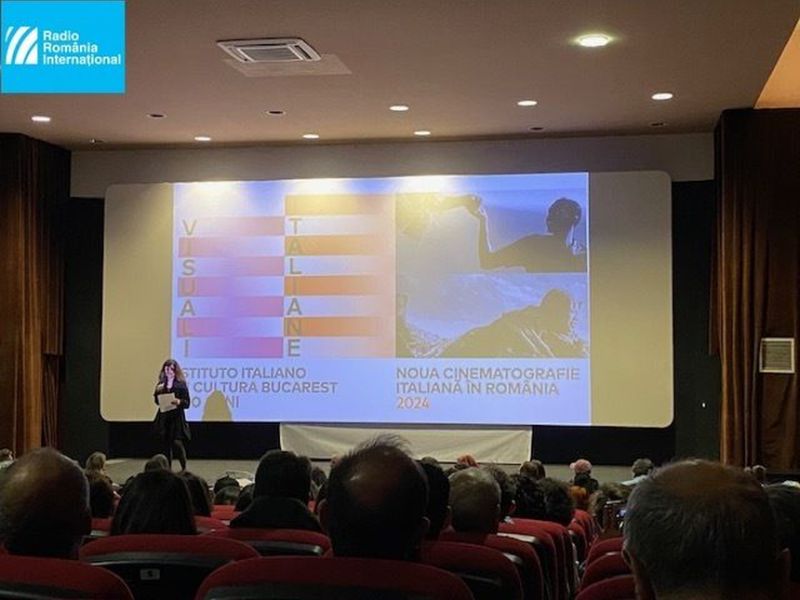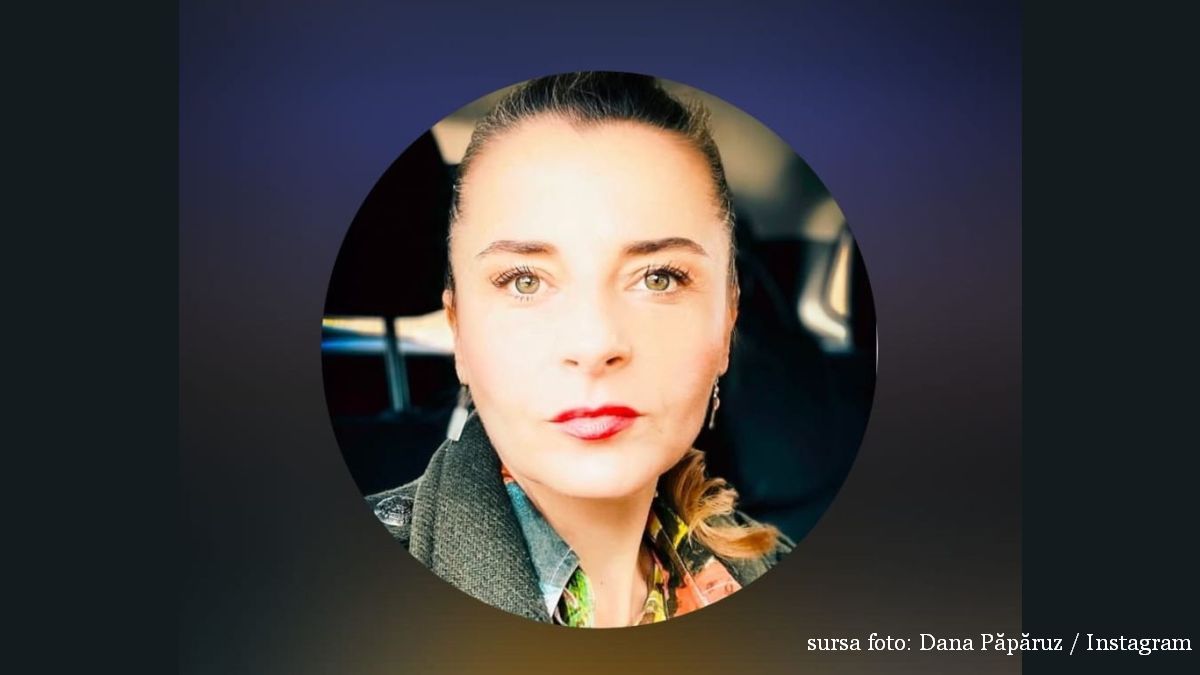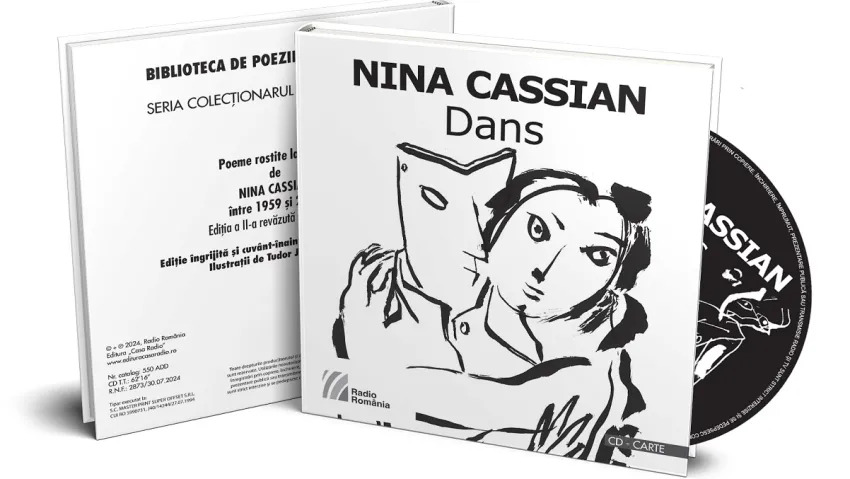“Observator Lyceum”, a project carried out by Observator Cultural
The project is meant to create a platform of communication between contemporary Romanian writers and young readers.
Warning: Trying to access array offset on null in /home/web/rri.ro/public/wp-content/themes/rri/template-parts/content.php on line 53

Warning: Trying to access array offset on null in /home/web/rri.ro/public/wp-content/themes/rri/template-parts/content.php on line 98
Ștefan Baciu,
19.01.2019, 14:15
“Observator Lyceum” is a project initiated in 2016 by the “Observator Cultural” magazine with support from the Romanian Literature Museum, after the model of the prestigious French prize, Goncourt des Lycéens. The project is meant to create a platform of communication between contemporary Romanian writers and young readers, out of the wish to instill in them a passion for reading and for Romanian literature. Awarded during the Observatorul Cultural Award Gala, in 2018 the project enjoyed the participation of students from 9 of the best high-schools in Bucharest, who granted the Observator Lyceum Prize for prose. Students receive books, read them and jury: the winner in 2016 was Octavian Soviany, for the novel The Death of Siegfried, brought out by the Cartea Românească Publishers, in 2017 Vlad Zografi, with the novel The Side Effects of Life, issued by Humanitas Publishers, and finally in 2018 Tatiana Țîbuleac with the novel The Summer When Mother had Green Eyes, brought out by Cartier Publishers.
Carmen Muşat, the initiator of Observator Lyceum, believes the project is a special opportunity for both students and contemporary writers. Thanks to the project, students discover contemporary literature and develop their critical spirit, which can’t otherwise be stimulated by either the school curricula which hasn’t been changed for tens of years or by the media, which gives little coverage to cultural events.
Carmen Muşat: “Every year, debates are extraordinary, I like them a lot. Left alone to think about the text and ponder, these young people prove to be extraordinarily creative. And..when we meet and discuss the text, they do not repeat their opinions. Even if I choose the same text, they always bring forth different arguments to support their opinion. It is fascinating to see they are open minded children, who can express their ideas and thoughts coherently and meaningfully in the Romanian language. And I believe this is precisely the main purpose of education: to mould and create people capable to understand and express themselves. If we ask them only to repeat what others say, you can’t stimulate them in any way. And I’m not referring to literature alone, but also to their behavior as citizens. How could we have responsible citizens if you do not give them credit, if you don’t make them understand that their opinion matters? Unfortunately, the Romanian education system forces them more often than not to appropriate others’ ideas. Therefore, can we dare hope they will have critical thinking?”
To Dorica Boltaşu Nicolae, a teacher at the “Iulia Haşdeu” high-school in Bucharest, Observator Lyceum is not the first project she takes part in outside the school curricula. She organized debates and workshops for her students and has recommended to them several contemporary writers, who could stir her students’ interest in literature, thanks to the theme they approach.
Dorica Boltaşu Nicolae: “I attended the debate organized ahead of the jury’s decision and I can say that both for me and my colleagues from the other high schools it was a big surprise to see them in the process of decision making. To see them arguing, contradicting one another, because they do have the courage to contradict one another, which does not happen during a regular Romanian literature class. It was surprising to see how they think, how they speak, how they relate to certain values and aspects of life which they find in those books. We were so eager to hear everything that they were saying, it was like watching a show. Observator Lyceum is a great chance for them.”
Lorena Mihăilescu and Ana Maria Ion, students with the ‘Iulia Hasdeu’ National College, have been part of the jury of the Observator Lyceum since the very first edition. Observator Lyceum gave them the chance to understand that each argument and opinion matters and that contemporary literature connects one to the world one is living in.
Lorena Mihăilescu: “I don’t think I am wrong to say that in the first edition, in 2016, everybody was hesitant and shy, even though we ended up having a normal conversation. We went past our embarrassment or the fear of saying what we think, and we supported our favorite books. I was very impressed with the debates in the second year, which were quite fiery and passionate. I loved that atmosphere, where each participant used arguments to support their opinions. In the 3rd edition of Observator Lyceum, which is my favourite one, there were a lot of participants, almost 30 people, with some high schools having as many as 4 representatives each. So there were lots of opinions and arguments, everybody had a personal view. What is essential is that during all these years we have learned a lot, from how to express ourselves to how to read a text.”
Ana Maria Ion: “My favorite edition so far is the last one, because I loved the books that we had to discuss. Another advantage of the last edition was, as Lorena also pointed out, the fact that the project developed and in 2018 there were a lot of participants. As a result, the debates were quite animated. In my opinion, the main benefit of the Observator Lyceum project is that it has helped us become aware of our differences and understand that it is only natural for each person to have a different opinion about a text. And it is very important that this format does away with reading a text in the uniform manner imposed in high schools. Unfortunately, in high schools we are taught that there is only one possible opinion on a literary text, namely the one from the textbook.”






























